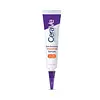What's inside
What's inside
 Key Ingredients
Key Ingredients

 Benefits
Benefits

 Concerns
Concerns

 Ingredients Side-by-side
Ingredients Side-by-side

Water
Skin ConditioningAscorbic Acid
AntioxidantGlycerin
HumectantDimethicone
EmollientCetearyl Ethylhexanoate
EmollientAlcohol Denat.
AntimicrobialSodium Hydroxide
BufferingAmmonium Polyacryloyldimethyl Taurate
Emulsion StabilisingPanthenol
Skin ConditioningCeramide NP
Skin ConditioningCeramide AP
Skin ConditioningCeramide EOP
Skin ConditioningCarbomer
Emulsion StabilisingCetearyl Alcohol
EmollientBehentrimonium Methosulfate
Sodium Hyaluronate
HumectantSodium Lauroyl Lactylate
EmulsifyingCholesterol
EmollientPhenoxyethanol
PreservativeTocopheryl Acetate
AntioxidantDisodium EDTA
Isopropyl Myristate
EmollientCaprylyl Glycol
EmollientXanthan Gum
EmulsifyingPhytosphingosine
Skin ConditioningEthylhexylglycerin
Skin ConditioningWater, Ascorbic Acid, Glycerin, Dimethicone, Cetearyl Ethylhexanoate, Alcohol Denat., Sodium Hydroxide, Ammonium Polyacryloyldimethyl Taurate, Panthenol, Ceramide NP, Ceramide AP, Ceramide EOP, Carbomer, Cetearyl Alcohol, Behentrimonium Methosulfate, Sodium Hyaluronate, Sodium Lauroyl Lactylate, Cholesterol, Phenoxyethanol, Tocopheryl Acetate, Disodium EDTA, Isopropyl Myristate, Caprylyl Glycol, Xanthan Gum, Phytosphingosine, Ethylhexylglycerin
Water
Skin ConditioningPrunus Amygdalus Dulcis Oil
Skin ConditioningCaprylic/Capric Triglyceride
MaskingStearic Acid
CleansingPEG-12 Glyceryl Dimyristate
Skin ConditioningGlyceryl Stearate
EmollientPEG-100 Stearate
Silica
AbrasiveTocopheryl Acetate
AntioxidantCetyl Alcohol
EmollientPhenoxyethanol
PreservativeTriethanolamine
BufferingCarbomer
Emulsion StabilisingPanthenol
Skin ConditioningEthoxydiglycol
HumectantPolyaminopropyl Biguanide
PreservativeDisodium EDTA
PPG-12/Smdi Copolymer
EmollientKinetin
Skin ConditioningZeatin
Skin ConditioningPolyurethane-40
Ethylhexylglycerin
Skin ConditioningCitrus Aurantium Dulcis Peel Oil
MaskingCaprylyl Glycol
EmollientSodium Carboxymethyl Betaglucan
Tetrahexyldecyl Ascorbate
AntioxidantAcetyl Octapeptide-3
HumectantImidazolidinyl Urea
PreservativeSodium Hyaluronate
HumectantCamellia Sinensis Leaf Extract
AntimicrobialHydrochloric Acid
BufferingWater, Prunus Amygdalus Dulcis Oil, Caprylic/Capric Triglyceride, Stearic Acid, PEG-12 Glyceryl Dimyristate, Glyceryl Stearate, PEG-100 Stearate, Silica, Tocopheryl Acetate, Cetyl Alcohol, Phenoxyethanol, Triethanolamine, Carbomer, Panthenol, Ethoxydiglycol, Polyaminopropyl Biguanide, Disodium EDTA, PPG-12/Smdi Copolymer, Kinetin, Zeatin, Polyurethane-40, Ethylhexylglycerin, Citrus Aurantium Dulcis Peel Oil, Caprylyl Glycol, Sodium Carboxymethyl Betaglucan, Tetrahexyldecyl Ascorbate, Acetyl Octapeptide-3, Imidazolidinyl Urea, Sodium Hyaluronate, Camellia Sinensis Leaf Extract, Hydrochloric Acid
 Reviews
Reviews

Ingredients Explained
These ingredients are found in both products.
Ingredients higher up in an ingredient list are typically present in a larger amount.
Caprylyl Glycol is a humectant and emollient, meaning it attracts and preserves moisture.
It is a common ingredient in many products, especially those designed to hydrate skin. The primary benefits are retaining moisture, skin softening, and promoting a healthy skin barrier.
Though Caprylyl Glycol is an alcohol derived from fatty acids, it is not the kind that can dry out skin.
This ingredient is also used as a preservative to extend the life of products. It has slight antimicrobial properties.
Learn more about Caprylyl GlycolCarbomer is a polymer of acrylic acid. Its main role is to create a gel consistency.
A high amount of carbomer can cause pilling or balling up of products. Don't worry, most products contain 1% or less of carbomer.
Disodium EDTA plays a role in making products more stable by aiding other preservatives.
It is a chelating agent, meaning it neutralizes metal ions that may be found in a product.
Disodium EDTA is a salt of edetic acid and is found to be safe in cosmetic ingredients.
Learn more about Disodium EDTAEthylhexylglycerin (we can't pronounce this either) is commonly used as a preservative and skin softener. It is derived from glyceryl.
You might see Ethylhexylglycerin often paired with other preservatives such as phenoxyethanol. Ethylhexylglycerin has been found to increase the effectiveness of these other preservatives.
Panthenol is a common ingredient that helps hydrate and soothe the skin. It is found naturally in our skin and hair.
There are two forms of panthenol: D and L.
D-panthenol is also known as dexpanthenol. Most cosmetics use dexpanthenol or a mixture of D and L-panthenol.
Panthenol is famous due to its ability to go deeper into the skin's layers. Using this ingredient has numerous pros (and no cons):
Like hyaluronic acid, panthenol is a humectant. Humectants are able to bind and hold large amounts of water to keep skin hydrated.
This ingredient works well for wound healing. It works by increasing tissue in the wound and helps close open wounds.
Once oxidized, panthenol converts to pantothenic acid. Panthothenic acid is found in all living cells.
This ingredient is also referred to as pro-vitamin B5.
Learn more about PanthenolPhenoxyethanol is a preservative that has germicide, antimicrobial, and aromatic properties. Studies show that phenoxyethanol can prevent microbial growth. By itself, it has a scent that is similar to that of a rose.
It's often used in formulations along with Caprylyl Glycol to preserve the shelf life of products.
Sodium Hyaluronate is hyaluronic acid's salt form. It is commonly derived from the sodium salt of hyaluronic acid.
Like hyaluronic acid, it is great at holding water and acts as a humectant. This makes it a great skin hydrating ingredient.
Sodium Hyaluronate is naturally occurring in our bodies and is mostly found in eye fluid and joints.
These are some other common types of Hyaluronic Acid:
Learn more about Sodium HyaluronateTocopheryl Acetate is AKA Vitamin E. It is an antioxidant and protects your skin from free radicals. Free radicals damage the skin by breaking down collagen.
One study found using Tocopheryl Acetate with Vitamin C decreased the number of sunburned cells.
Tocopheryl Acetate is commonly found in both skincare and dietary supplements.
Learn more about Tocopheryl AcetateWater. It's the most common cosmetic ingredient of all. You'll usually see it at the top of ingredient lists, meaning that it makes up the largest part of the product.
So why is it so popular? Water most often acts as a solvent - this means that it helps dissolve other ingredients into the formulation.
You'll also recognize water as that liquid we all need to stay alive. If you see this, drink a glass of water. Stay hydrated!
Learn more about Water